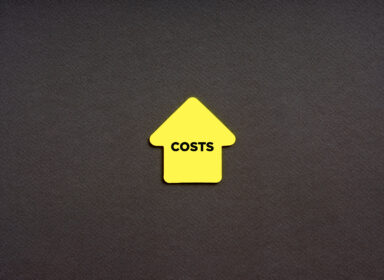Introduction: From Operational Challenges to Cultural Transformation
Founded in 2015 by Stijn De Mil, a former STEM educator, FabLab Factory (FabLab) initially made its mark as a key player in providing digital fabrication machinery. Recognizing a market gap in user-friendly software, FabLab shifted focus to software development, aiming for simplicity and compatibility. This strategic move, marked by the beta launch of MakerStudio in 2023, demonstrated FabLab’s commitment to enhancing the digital fabrication experience for everyday consumers. To enable this transition in the business’s focus Stijn started working with A&H consulting to help reshape operational culture and enhance efficiency.
Initial Challenges and Objective: Capital Constraints, Inexperienced Team, and Operational Inefficiencies
The FabLab software division, grappling with significant capital constraints, heavily relied on part-time contractors. This unique team composition, featuring varied schedules and minimal industry experience, created pronounced shortfalls in knowledge sharing and communication. These issues severely hindered the team’s progress and overall efficiency.
In response, A&H was tasked with two primary objectives: find a way to mitigate the risks associated with an inexperienced and part-time workforce, and establishing clear, predictable practices to streamline the division’s operations while staying within tight capital constraints. Through our analysis together with Stijn, we agreed the core problem as the team’s lack of commercial experience, and therefore no real understanding of industry best practices that are essential to a cohesive working environment.
Strategic Intervention: Engineering Team Soft Transformation, Engaged Business Planning, and Tailored Incentive Structure
Furthermore, A&H Consulting worked closely with the founder and software team to establish clear product priorities and milestones. We have achieved this by three separate efforts:
- Cultivating an Engineering Culture: Focus on professional development and effective work practices within the engineering team.
- Transition to Product-Led Strategy: Establishing clear product priorities and aligning team efforts with business objectives.
- Innovative Compensation Approach: Introducing creative compensation strategies to motivate and incentivize the team within budget constraints.
Engineering Team Coaching, Development, and Introduce The Desired Engineers Way of Working Culture
While the challenges this team faces are present in many teams, having an inexperienced team working part-time certainly made them more pronounced. To move forward we established a dual focus approach with Stijn:
- Coaching the engineering team on fundamental professional practices, such as effective remote working, conducting efficient handovers, and coordinating across engineers who work with few hours overlap.
- Developing a strategic framework for the division. This framework was aimed at instilling a professional ethos, emphasizing communication, and collaboration.
By honing in on communication, collaboration and good remote-work practices, we aimed to instill a professional ethos within the team; encouraging knowledge sharing and collective problem-solving.
Product-Focused Business Planning
Simultaneously, together with Stijn, we established ways to move towards with clear product priorities and milestones for planning the road ahead. This involved coaching the team to articulate the commercial drivers behind product features. And thereby providing the engineering team with a deeper understanding of their work’s impact.
Creative Compensation Strategies To Better Incentivize The Engineering Team
Recognizing the division’s budget constraints, A&H also advised on alternative incentive structures. This creative approach included timing payment adjustments, bonus schemes, and equity options, balancing the need to conserve cash while providing fair compensation to the team.
Outcomes: Operational Efficiency, Team Dynamics, and Market Alignment
Tangible Gains
- Increased Productivity and Efficiency: Enhanced communication and some agreed ways of working practices have led to increased productivity. Better coordination and efficient remote working practices have streamlined project execution and resource utilization.
- Improved Product Quality and Innovation: With a deeper understanding of commercial drivers, the engineering team is contributing more market-relevant ideas, leading to innovative product development and enhanced quality.
- Market Responsiveness and Agility: Aligning product development with clear business objectives has increased FabLab’s agility and responsiveness to market changes, a crucial advantage in the digital fabrication sector.
- Strengthened Investor Confidence: The strategic groundwork for future fundraising, coupled with operational clarity, has bolstered investor confidence, potentially leading to favorable financing terms in the future.
Intangible Advancements
- Cultural Transformation and Enhanced Team Morale: The shift towards a collaborative and communicative culture has both redefined team dynamics and boosted morale. This transformation, supported by innovative compensation strategies, has fostered a positive environment, enhancing teamwork, problem-solving, and retention, particularly among part-time engineers. This culture will also allow quickly onboarding full time staff in the next phase of growth.
- Long-term Strategic Advantage: The operational improvements and cultural shift have positioned FabLab’s software division for long-term strategic advantages, enabling it to scale, innovate, and adapt more effectively in the future.
- Focused Investment Areas: Collaborative work with A&H has provided clear insights into investment priorities, aligning the division’s strategy with market demands and business goals.
Conclusion: Engineering a Future of Collaboration and Innovation
FabLab’s software division has embarked on a transformative journey. Significant progress has been made, particularly in cultivating a culture of openness and collaboration within the engineering team. This cultural shift is crucial for improving communication, enhancing knowledge sharing, and streamlining operations.
As this is an ongoing project, we are excited to see these positive changes unfold further. The groundwork laid for future fundraising and the integration of full-time engineers places FabLab in a strong position to continue its growth in the competitive digital fabrication sector.
We invite you to follow FabLab’s journey as it evolves, demonstrating the dynamic impact of strategic consulting in driving operational and cultural change. For more insights or to discuss how A&H can assist your organization in similar transformations, please reach out to us, we are always happy to hear your story.









